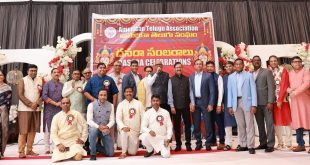In recent years, India has witnessed a disturbing surge in religious conversions, often disguised under the banner of charity and social service. While Christianity, in its purest form, preaches love, compassion, and peace, some converted individuals and groups within India are exploiting the faith as a mere tool to fulfill their personal, financial, and political motives.
It is shameful that these individuals, driven by foreign-funded missions and external agendas, are tarnishing the sanctity of Christianity itself. Many of them have little understanding of true Christian teachings. Their primary goal appears to be sustaining luxurious lifestyles and controlling poor, vulnerable sections of society by luring them into conversion traps using money, gifts, free education, or false promises of healing and miracles.
India’s Rich Spiritual Heritage Under Threat
India has been a land of diverse faiths living together for millennia. Yet, certain groups, especially those masquerading as social workers and pastors in white robes, are fueling division under the guise of Christianity. They specifically target economically backward communities—tribals, Dalits, and the uneducated—offering financial incentives and jobs, manipulating their hardships for religious conversion.
It is appalling that such people even work inside sacred Hindu temples, like the Tirumala Tirupati Devasthanam, while refusing to wear traditional symbols like the tilak or bottu and declining temple prasadam (sanctified offerings). However, they have no hesitation in drawing salaries from temple revenues—revenues offered by Hindu devotees.
Government Must Act Firmly
Several reports and media investigations have exposed such people, who shamelessly continue their double lives—enjoying temple salaries while silently spreading religious propaganda among staff and pilgrims. This is nothing but betrayal of their duties and an insult to India’s spiritual traditions.
Fortunately, the Government of Andhra Pradesh and the Endowments Department have recently begun identifying non-Hindu employees in Hindu temples, particularly in Tirumala, as per Rule 9 of the AP Charitable and Hindu Religious Institutions and Endowments Act. A large-scale review is underway to remove such individuals from sensitive positions, thereby preserving the sanctity of the temple.
Real Witnesses Speak Out
Many former converts and whistleblowers have now come forward, revealing how they were lured into Christianity by promises of foreign trips, hefty salaries, and comforts. Some admitted they were trained to subtly insult Hindu beliefs and practices, creating confusion among innocent people to drive conversions.
A well-known example includes the case of a former pastor in Hyderabad, who confessed publicly that he was instructed to dress as a “social worker,” enter Hindu communities, and gradually spread hatred against their customs. He admitted that their core strategy involved emotional manipulation, fear tactics about afterlife punishments, and distribution of foreign funds.
The Call for Vigilance
True Christianity teaches compassion, not conversion-for-profit. But in India, conversion mafias operate under various banners—NGOs, prayer halls, healing centers—targeting only Hindus, leaving other religious groups untouched.
It’s time for the Hindu society and the government to stay vigilant. Religious freedom does not mean freedom to exploit, deceive, and divide. Laws must be enforced strictly to stop religious conversion rackets, especially in tribal and temple areas. Non-Hindu employees in temples must either abide by temple traditions or be removed without delay.
Conclusion
This is not a fight against any religion. It is a fight against exploitation carried out under religious garb. It’s about protecting India’s spiritual heritage and ensuring that temples remain sacred spaces, free from hidden agendas.
The message is clear—those who wish to work in Hindu temples must respect temple traditions, or they have no place there.
Pic.Courtesy: Freepik
By
Giriprasad Sharma Kalle
 News Website (iasianews.net) I Asia News
News Website (iasianews.net) I Asia News







